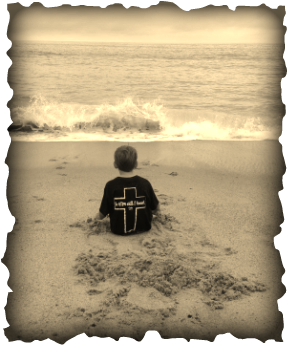H o w T o T e l l T h e C h i l d r e n
As adults, we are the ones our children are looking to for help, information and example. It can be such a tumultuous time in your life with children to care for as you also grieve. It can be a frightening time as you look to the unknown future. But take comfort in this wonderful list compiled by NFDA Grief Educator and Minister Victor M. Parachin and found on the National Funeral Director Association website. It is a great place to start to understand your role in helping the children in your life grieve. Click on their link above to be directed to their website which is filled with helpful and caring information about how children grieve. There is also a link below to Amazon for books to explore children's grief and children's books written specifically for kids to read or have read to them. 10% of your purchase from these links help support our mission.
Explaining Death To A Child
By NFDA Grief Educator and Minister Victor M. Parachin
|
DO be honest about death. As hard as it may be to break the news to a child, honesty is the best policy. It is far worse for a child to accidentally discover the "secret" and then be told, "We thought is was best not to tell you."
DON'T use euphemisms. Explaining death to a child as "Uncle Johnny went on a long trip" or "Grandma Betty is sleeping" may instill fear in the child of going on a trip or to sleep. It is better to explain in simple phrases like "dead means a person's body has stopped working and won't work anymore." DO help children express their feelings. Encourage children to cry-out their grief and talk out their thoughts and feelings about death. DO be a good listener. Like adults, children need to talk about the loss and their feelings connected to it. DON'T tell a child how to feel. Let a child experience and express grief in their own way. |
DO offer continuous love and assurance. Children need to know they are loved to feel secure. By being present and available during the difficult mourning process, parents can help their children bear the pain.
DON'T hide your grief from children. Seeing you grieve will let children know that it is normal and healthy to cry and feel sad after death. Do invite others to help your children. Often, someone outside the family can provide much needed additional comfort, concern and care. DON'T assume children will just "get over it." Whether you are dealing with a young child or adolescent, be proactive and provide all of the comfort and consolation you can. DO nurture faith but DON'T blame your personal religious god. Often a death will draw religious questions from a child. Explaining to a child that "God needed Daddy," or "It was Allah's will," can create future spiritual problems. Instead, remind your child that "Buddha shares our pain and will help us get through the crisis." |
Click here to explore more Books About Children's and Teens' Grief
Each book is linked directly to Amazon.com for you to explore its descriptions, author information and reviews, and make purchases through your Amazon account. Amazon.com kindly offers 10% of your purchases from our book links to help support our mission.
We sincerely thank you for your support too! We are working hard to make a difference for families in need.
We sincerely thank you for your support too! We are working hard to make a difference for families in need.
|
Children and Grief: When A Parent Dies
by J. William Worden PhD |
Great Answers to Difficult Questions About Death: What Children Need To Know
by Linda Goldman |
The Grieving Child: A Parent's Guide
by Helen Fitzgerald |


